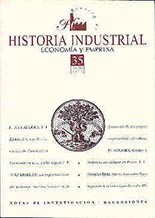Credit and industry in the Peronist period, 1944-1955
Keywords:
Industria, Crédito, Peronismo, ArgentinaAbstract
During the Peronist experience of 1946-1955 the industrial sector was promoted through different instruments among which the credit policy stood out. In special the Banco de Crédito Industrial, an organization created shortly before by the military revolution of June of 1943, was used. This work studies this institution, with the definitions of economic policy that the Peronism had in its initial stages, characterized by the impulse of practically all the manufacturing activities; and in the denominated stage of “course change” (from 1949 to 1955), when the restrictions in the external sector promoted support to the farming activities and defined a credit policy towards the more selective industrial sector. Specially, the work indicates the limits of Peronist industrialization when emphasizing how the great companies were the main beneficiaries by the credit policy of the government in response to the demand and not to clear strategies of supply.
Downloads
Downloads
Published
How to Cite
Issue
Section
License
The author assigns all rights to the publisher. Creative Commons
The author who publishes in this journal agrees to the following terms:
- The author assigns all intellectual property rights exclusively to the publisher for the entire duration of the applicable intellectual property rights.
- The publisher will distribute the texts under the Creative Commons Attribution License, which allows others to share the work, provided that they acknowledge the authorship, its initial publication in this journal, and the conditions of the license.





